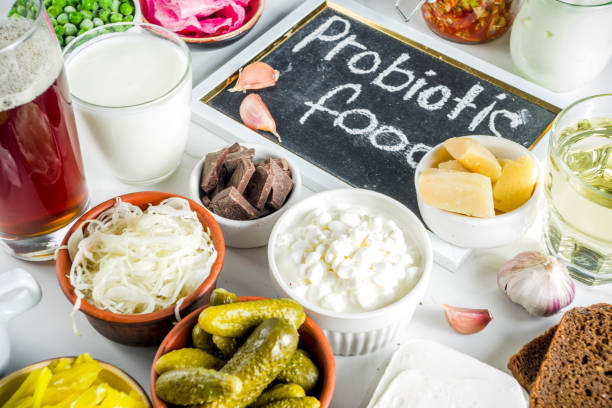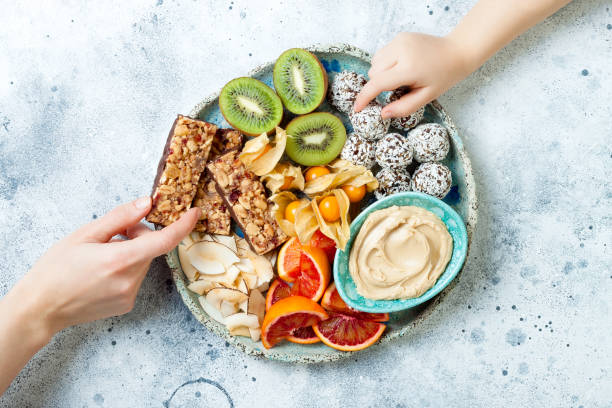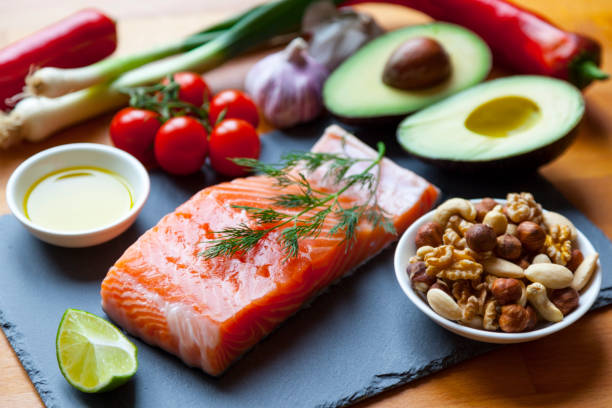Interest in drugs that might improve cognitive ability has exploded in recent years. Students, professionals, and everyone else trying to maximize their mental performance have drawn attention to these nootropic drugs. Although conventional nootropics are usually pills or capsules, there is an increasing trend of including them into daily meals and beverages. The interesting universe of nootropic-infused edibles and beverages, their possible advantages, and issues of responsible consumption are explored in this post.
Everything About Nootropics
Derived from the Greek words “nous” (mind) and “tropein” (to turn), nootropics seek to enhance certain cognitive abilities. They can aim at memory, attention, focus, learning, and general brain function. While some nootropics are synthetic, others come from natural sources including mushrooms, herbs, and plants.
Nootropics in Food and Beverages
 There are various benefits when nootropics are included into food and drink. It offers a practical and fun approach, first of all, to include these cognitive boosters into daily living. Furthermore, eating and drinking nootropics could help to hide any bad tastes or textures connected with conventional supplements.
There are various benefits when nootropics are included into food and drink. It offers a practical and fun approach, first of all, to include these cognitive boosters into daily living. Furthermore, eating and drinking nootropics could help to hide any bad tastes or textures connected with conventional supplements.
Kinds of Nootropic-Infused Drinks and Food
There is a large and varied field in nootropic-infused edibles and beverages. Among the well-known instances are:
Coffee and Tea
Already great for their caffeine, coffee and tea can be improved with nootropic additives like L-theanine or lion’s mane mushroom extract. These drugs can increase general cognitive ability, lower anxiety, and help one to concentrate.
Energy Drinks
Many times, energy drinks have a mix of stimulants including taurine and caffeine. These beverages can provide a more balanced approach to energy boosting by including nootropics like bacopa monnieri or rhodiola rosea, therefore encouraging mental clarity and lowering of tiredness.
Functional Foods
Nootropics can be added to several functional foods like seeds, almonds, and chocolate. For example, although nuts and seeds can be fortified with omega-3 fatty acids, known for their brain-boosting qualities, cocoa-infused chocolate can include ingredients that improve mood and cognitive ability.
Snacks Infused with Nootropics
A variety of foods can be created with nootropic substances from protein bars to gummies. These snacks offer a quick and delicious approach to help cognitive performance all through the day.
Possible Advantages of Nootropic-Infused Foods and Drinks
Eating and drinking nootropics can provide a number of possible advantages, including:
1-Enhanced Concentration and Focus
Nootropics can aid to improve attention span and lower distractions, therefore facilitating task focus.
2-Improved Learning and Memory
Some nootropics can help to create and retrieve memories, therefore enhancing recall and learning capacity.
3-Enhanced Mood and Lower Anxiety
A few nootropics have proved to have anxiety-reducing and mood-boosting properties.
4-Improved Brain Health
Regular use of nootropics may potentially have neuroprotective effects and help to maintain general brain function.
Thinking through Responsible Consumption
Although nootropic-infused meals and drinks are a handy approach to improve cognitive ability, use should be careful. Here are several important factors:
Personal Variability
Different people will experience different benefits from nootropics. Finding the nootropics and dosages that suit you could need some trial and error.
Possible Side Effects
Some people might have minor side effects including headaches, stomach problems, or trouble sleeping. Should you have any side effects, stop using it and see a doctor.
Quality and Purity
Selecting nootropic items from reliable providers that give purity and quality top priority is really vital. Search for items with open ingredient lists and labels.
Consultation
See a healthcare professional. Before including nootropics into your diet, be sure you see a healthcare provider whether you have any underlying medical concerns or take drugs.
Final Thought
Food and beverages with nootropic influences have fascinating opportunities to improve general well-being and cognitive ability. Understanding the several forms of nootropics, their possible advantages, and factors of responsible usage will help you to make wise decisions and maximize the power of these cognitive enhancers. Whether your goal is to maximize your mental performance, whether you are a student, professional, or just looking, exploring the world of nootropic-infused edibles and beverages could be a worthy activity especially if you want to learn more info for 2024.
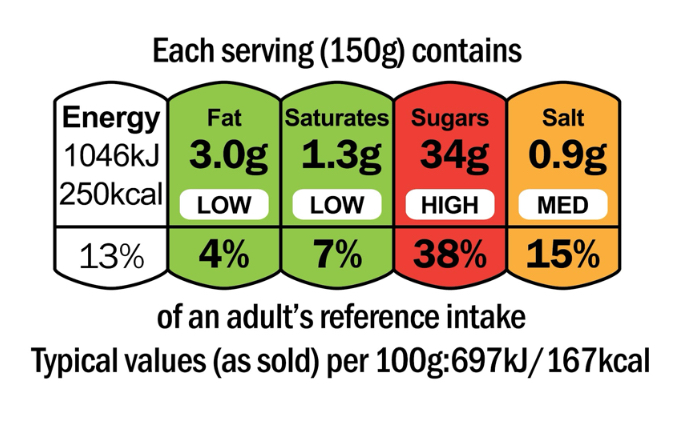
 A good question to ask yourself before consuming something is “Do I feel really hungry?” or “Do I just crave for something?”. This helps you tell the difference between eating out of feeling and being physically hungry.
A good question to ask yourself before consuming something is “Do I feel really hungry?” or “Do I just crave for something?”. This helps you tell the difference between eating out of feeling and being physically hungry.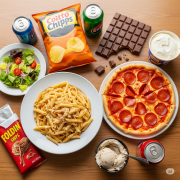 Sugar and artificial substances abound in packaged goods that boast “low-fat” or “diet-friendly” labels. Cravings and a halt to fat reduction could result from these. Whole, unprocessed food is a great pick.
Sugar and artificial substances abound in packaged goods that boast “low-fat” or “diet-friendly” labels. Cravings and a halt to fat reduction could result from these. Whole, unprocessed food is a great pick. A dietitian may assist you develop a sustainable eating plan and offer individualized nutrition recommendations. Regular physical activity helps you to maintain good eating habits since it enhances both your physical and mental state.
A dietitian may assist you develop a sustainable eating plan and offer individualized nutrition recommendations. Regular physical activity helps you to maintain good eating habits since it enhances both your physical and mental state.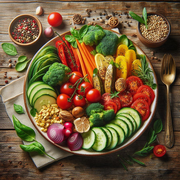 Emphasize especially fruits, vegetables, legumes, and whole grains. These supply antioxidants, fiber, and vital minerals.
Emphasize especially fruits, vegetables, legumes, and whole grains. These supply antioxidants, fiber, and vital minerals. There are various benefits when nootropics are included into food and drink. It offers a practical and fun approach, first of all, to include these cognitive boosters into daily living. Furthermore, eating and drinking nootropics could help to hide any bad tastes or textures connected with conventional supplements.
There are various benefits when nootropics are included into food and drink. It offers a practical and fun approach, first of all, to include these cognitive boosters into daily living. Furthermore, eating and drinking nootropics could help to hide any bad tastes or textures connected with conventional supplements. Wine and juice prepared from red grapes contain resveratrol. It may help weight loss and hay fever. Resveratrol may increase blood artery diameter and decrease blood clotting. With the consumption of resveratrol, human’s body has the ability to reduce discomfort, combat disease, alleviate swelling, and decrease the level of sugar in the blood.
Wine and juice prepared from red grapes contain resveratrol. It may help weight loss and hay fever. Resveratrol may increase blood artery diameter and decrease blood clotting. With the consumption of resveratrol, human’s body has the ability to reduce discomfort, combat disease, alleviate swelling, and decrease the level of sugar in the blood. Greek Meze
Greek Meze
 A number of different non-surgical treatments manage individual details. One method used to increase collagen is called microneedling. This procedure operates by tiny scratching in the skin, which results in an aging look and a well-toned surface. Laser treatments do this by directing the beams of light at the sun-damaged skin rather than the hyperpigmentation or wrinkles.
A number of different non-surgical treatments manage individual details. One method used to increase collagen is called microneedling. This procedure operates by tiny scratching in the skin, which results in an aging look and a well-toned surface. Laser treatments do this by directing the beams of light at the sun-damaged skin rather than the hyperpigmentation or wrinkles. 